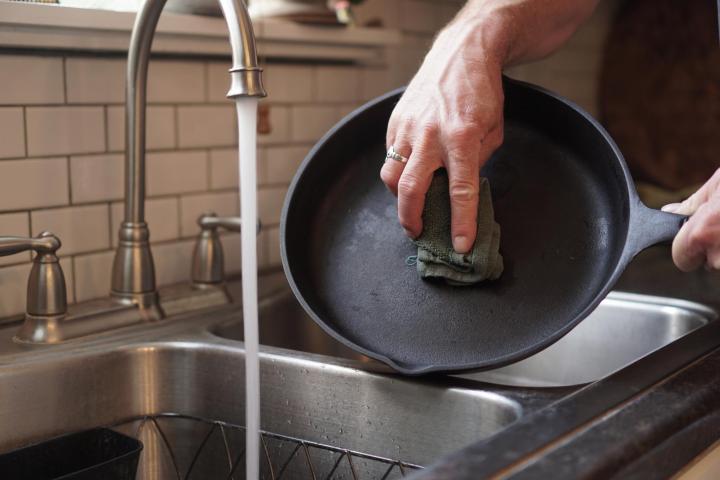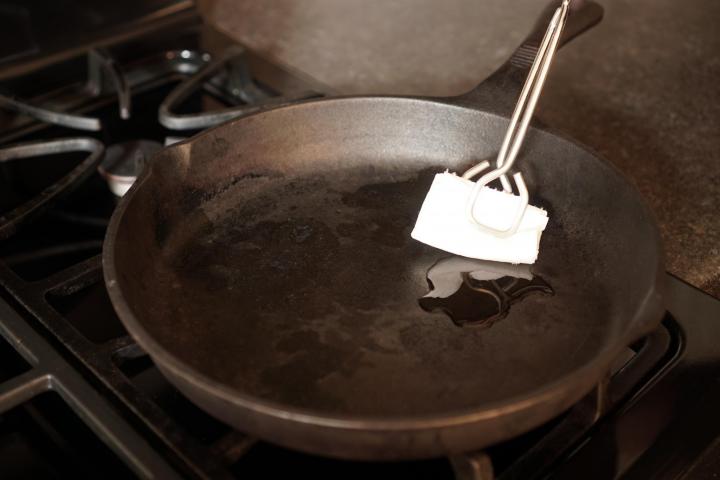
Keep Your Cast Iron in Good Condition
ADVERTISEMENT
This is actually more of a question than a comment. My husband found some of his mother's old cast iron that had been stored in an outbuilding for an extended period of time and they are VERY rusty. Is there a way to restore them?
If you have access to a sand blaster, that will remove all the rust. If not, you can remove rust by hand with steel wool. Depending on the accumulation, it might take multiple tries to do so. No soap. No Water. Dry steel wool. Continue repeating this until you've removed all the rust. For stubborn areas, a little cooking oil and steel wool will help. You can also use scotch brite pads (no soap) dry to bring up the finish and final clean. As you repeat this process, wipe out rust with paper towels, or an old towel. When all completed, lukewarm water rinse with steel wool to do a final clean. rinse and wipe dry. Place on burner and heat until very hot. then condition using the cooking oil method shown on almanac site. Keep it clean and dry and conditioned and it will last many lifetimes. No Soap!
My mom taught me how to care for CI - she learned it from her mom and her German born grand mom. My mom said the CI should be clean enough to wipe with a white dish towel - so yes, we always used some soap on our CI and then quickly re-seasoned lightly. Mom had the best CI and nothing ever stuck. I know this goes against what you are saying ... but this is 4 generations of CI use.
My mom taught me how to clean and re-season cast iron skillets. She used a small amount of soap and it was put ona burner or the hot oven to dry. Then it was seasoned with oil or grease. Best nonstick pans for years of use. I am now 79 yrs young. Still use mom’s skillet
I've maintained cast iron cookware this way for years with outstanding results. It keeps the cast iron clean to the metal with no build up and as long as you dry well after cleaning and rinsing and condition with a light oil coat, it's good to go. Cast iron is my #1 go to cooking utensil. I have a set of 5 pans which nestle together. other specialty ones as well. Best and most healthy way to cook. Can't beat cast iron cooking for steak!
Hi, Dr. Priestley. Thank you for chiming in with your family’s experience with cast iron.
I like the flax seed oil method for seasoning cast iron ( you can find this online). Being a drying oil, it binds with the iron and the finish stays nonstick for a good amount of time. The process can be repeated. I use the Lodge stuff bristle brush to clean. Works on old and new pans.
Honestly, I just wipe my pan with a paper towel after I cook and then again before (after heating it up), and it stays relatively clean & seasoned. I will occasionally take some soap to it as mentioned in the article, but not after every use.
It is practically indestructable! As long as you do not allow rust to accumulate it will last decades and
give reliable dependable service. No aluminum or teflon or plastics in your food. What's not to like?
Thanks for the info on cast irons.










